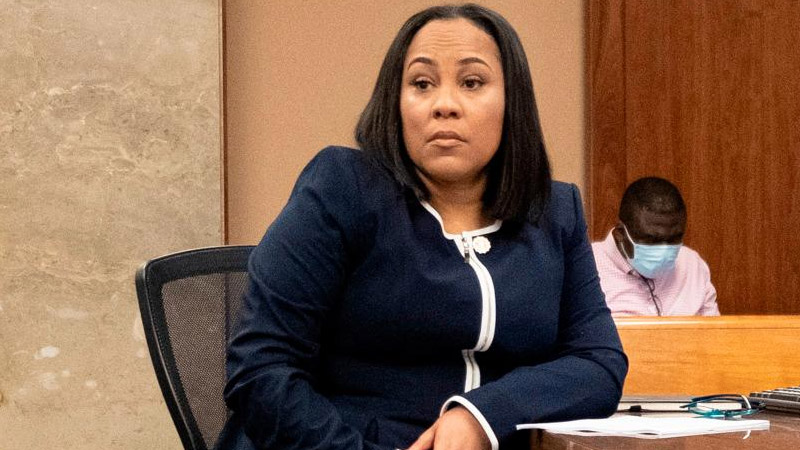“It’s very strange to me why none of the testimony either on the first day” Trump Georgia Case Hearing Swamped in Gossip, Expert Puzzled by Tactics Against Fani Willis

Ben Gray/AP
In a recent court hearing aimed at assessing the potential disqualification of Fulton County District Attorney Fani Willis from the Georgia election racketeering case involving former President Donald Trump, the proceedings appeared to be more focused on personal dynamics than on substantive financial conflict of interest issues.
Karen Agnifilo, the former Manhattan Chief Assistant District Attorney, shared her perplexity over the day’s events on CNN’s “The Situation Room,” highlighting the lack of clarity in the courtroom discussions. The hearing, which lasted two hours, featured Terrence Bradley, a former divorce attorney for special prosecutor Nathan Wade, as a key witness.
“It’s very strange to me why none of the testimony either on the first day of the hearing or this day today of the hearing focused on a financial conflict of interest and things like, ‘How did you decide to hire him?’ ‘What was the process?’ Was he vetted?’ ‘Who discussed the amount of money you are going to pay him when he submitted his hourly invoices?’ ‘Was somebody looking at those invoices and were their quality controls in place?’ Or whatever it was?” said Agnifilo.
“There could have been a whole line of questioning that established a potential financial conflict of interest, regardless of when a relationship started between Fani Willis and Nathan Wade.”
The questioning, particularly by Ashleigh Merchant, the attorney representing Trump’s co-defendant Michael Roman, seemed to aim at uncovering inconsistencies in the testimonies of Willis and Wade regarding the timeline of their professional relationship. Superior Court Judge Scott McAfee, overseeing the case, decided to have Bradley testify again after concluding that Wade’s consultations with him were not protected by attorney-client privilege.
Despite the intricate legal maneuverings and personal allegations aired during the session, Agnifilo noted a significant gap in the proceedings: a direct exploration of whether there exists a financial conflict of interest significant enough to warrant Willis’s disqualification from the case.
In court, he reminded the public that a “disqualification can occur if the evidence is produced demonstrating an actual conflict or the appearance of one.”
This key question remains unanswered, according to Agnifilo, despite the efforts of the defense attorneys to probe the relationships and interactions among the case’s principal figures. The focus on personal and professional connections, without a clear link to a disqualifying financial conflict, leaves a cloud of confusion over the proceedings and their implications for the prosecution of the high-profile case.


